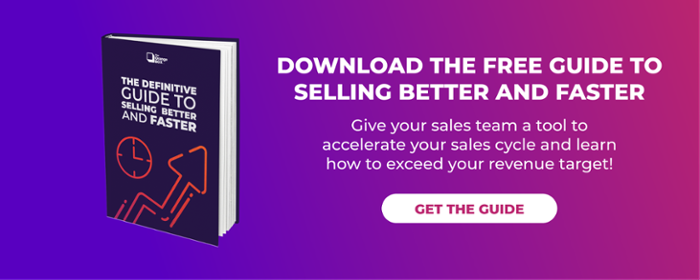7 B2B Sales KPI to Measure Success

Andrea Felix
Andrea Felix | Oct 16, 2020 | 5 MIN READ
Oct 16, 2020 5 MIN READ

As a business owner, we are certain that you already know the importance of data in creating a strategy to attract and sustain your clients. At the end of the day, favorable public sentiment is good, but unless you can boil down the results into numbers, opinions mean close to nothing when it comes to your bottom line.
However, when it comes to sales, gathering, and tracking too much data can do more harm than good. Data IS important, but data without any purpose can be debilitating to your operations. It isn’t about tracking everything, it is about tracking the RIGHT things.
With that said, identifying the KPIs that are relevant to your sales goals should be a priority. Different industries benefit from tracking different KPIs. In this article, we’ll flesh out seven key performance indicators that can help your business attract the right customers, close more deals, and develop better and lasting business relationships.
<< Get the secret to optimize your sales process and accelerate your business growth. Get the definitive guide to selling better and faster >>
Monthly Sales
At its core, a successful company is a growing company. Tracking your monthly sales growth is one of the most important KPIs that you should be taking note of. This measure allows you as a business owner to see if your efforts are going towards a worthy cause.
While annual reports seem to be of more value, having a monthly snapshot of how your operation is doing would enable you to improve your sales process and pivot the steps that aren’t effective.
Annual reports are important because growth can change from month to month. However, you don’t want to wait until the next annual report to figure out that you could’ve done something to improve your business. It would be a shame to learn about missed opportunities in December if you had the chance to implement changes in June.

Opportunities Created
Most managers hyper-focus on the number of sales calls and emails their reps make every day. While this metric is important, it truly doesn’t matter if they make a hundred calls a day, if these calls are made to people who aren’t interested or do not have any need for your product or service.
More than the number of calls and emails, tracking the opportunities created can give you a clearer picture if the path that you are trekking as a business is a path to success. This KPI can show if your leads are valuable, your sales pitch is useful, and your salespeople are capable.
Customer Contact Method
A closed deal isn’t just money in the bank, but it is also a seed that can grow into valuable leads. Determining where hot leads come from would enable you to direct your sales and marketing efforts toward those platforms and market segments that create them.
Providing your sales rep with this data would not only allow them to close more deals but it also is a great motivator. After all, your diligence in tracking this KPI puts them where they should be.
Sales Targets
Similar to tracking the customer contact method KPI, having sales targets for your team is a great motivator. After all, it is easier to work if you know what you are working towards.
Word of caution, your sales target shouldn’t be an arbitrary number that you pull out of thin air. Historical data should determine this goal and it should be attainable. A sales target is a great motivator but it could also dishearten your team especially if they know that there is no chance that they would hit the goal.

Average Conversion Time
In business, as in life, time is money. The longer your reps spend on converting a single lead, the more money they bleed out of your business. Think about it - if a rep finally closes a one-time deal worth $50 but he or she spent two weeks working on the sale, is that really a win?
Tracking average conversion time can help you pinpoint where the bottleneck lies in your sales funnel.
Customer Acquisition Cost
Like tracking your team’s average conversion time, having a clear idea of your customer acquisition cost gives you the chance to evaluate if your marketing and sales expenditures are worth your resources.
For instance, choosing above-the-line marketing is expensive. However, if one $1,000 commercial converts into a hundred $20 monthly recurring revenue sources then it beats spending $100 on a Facebook ad with 3 converted leads.

Retention Rates
In general, keeping loyal customers is less expensive than acquiring new ones. Tracking your retention rates puts a focus on clients who tried your product and eventually canceled. Having this data on hand enables you and your sales reps to identify the factors that might have pushed your clients to cancel as well as pinpoint the ideal time to check-in with your customers and offer a better deal.
Retention rates should also be considered in qualifying the leads that come through. While your initial audience targeting might be accurate in capturing clients, it might not have been enough to identify the target market that would stick around.
Sales isn’t the wild, wild west that it used to be. At present, useful data allows you as a business owner to make smart decisions for your company. While there simply is no road map to building a successful business empire, your KPIs can be your north star.
TABLE OF CONTENTS
Stay Updated with Our
Latest Posts
Subscribe now to receive the freshest content, insights, and updates directly in your inbox.

Recent Articles


2024 © The Orange Box Agency – All rights reserved




.png?width=90&height=90&name=facebook%20(1).png)
.png?width=94&height=96&name=Vector%20(1).png)